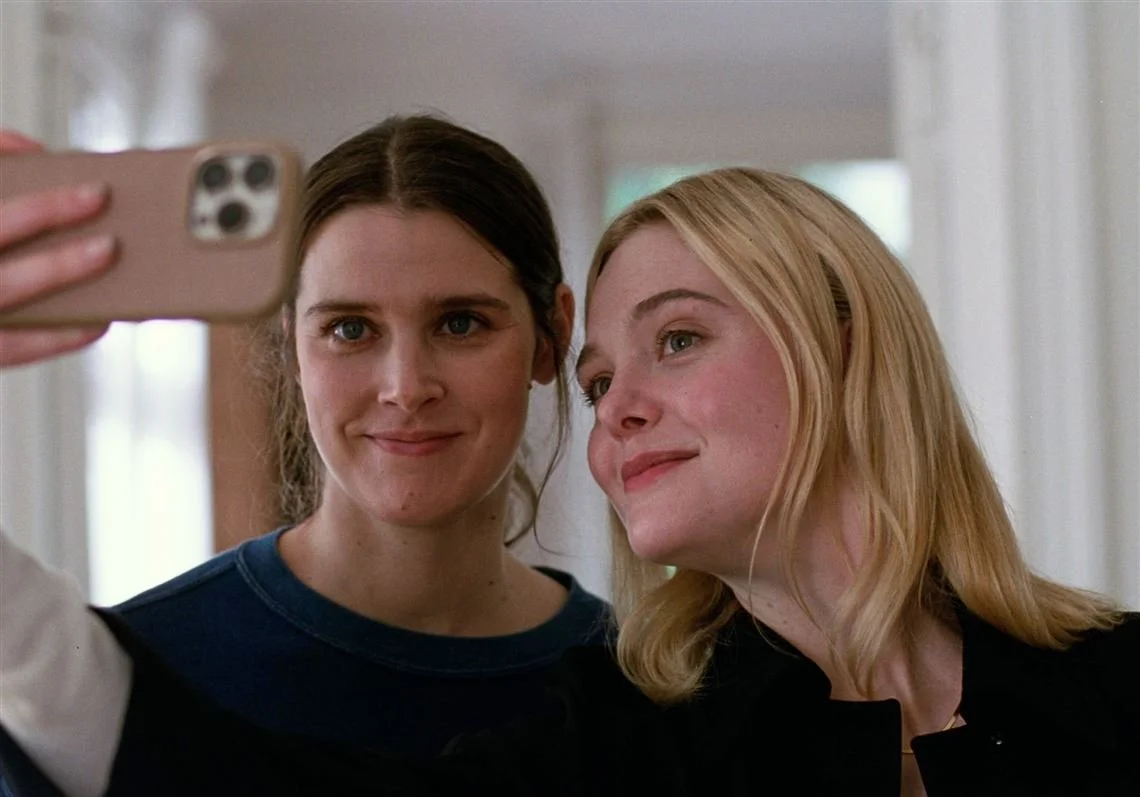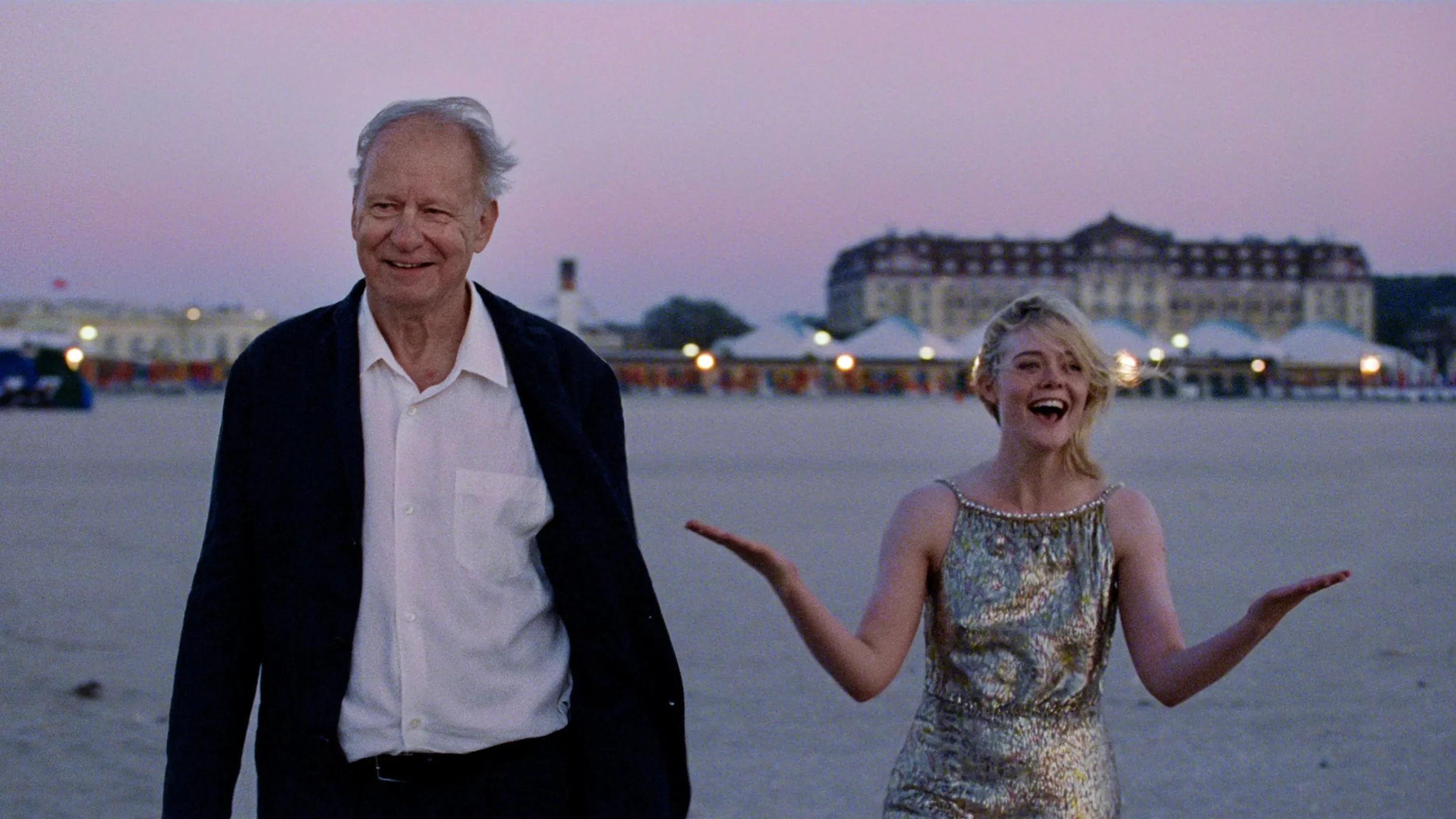‘Sentimental Value’ Review: Joachim Trier’s Most Accomplished Film
Joachim Trier offers a profoundly affecting meditation on the healing – and life-affirming – power of art in Sentimental Value, anchored by a devastating Renate Reinsve, who gives the year’s most soulful performance.
Somehow, Joachim Trier made a better film than The Worst Person in the World. Now, I’m not saying this was an impossible task. After all, his previous work felt like a distillation of what the Danish-Norwegian filmmaker had always aimed for, but never had the aesthetic and screenwriting impulses to push his ideas to the extreme beforehand.. Prior to his 2021 Cannes Award-winning film, Trier made admirable – but unmemorable – works both in Norwegian and English, which is why his Worst Person in the World felt so distinct and fresh. His style felt reinvigorated by a newfound purpose in diving deeper than ever before into his characters and having his images respond to their strongest, most intimate feelings (the “air drum” scene, in particular, is the perfect illustration of Trier’s evolution as an image-maker, first and foremost).
Surpassing it is no easy task, but this is what he did with Sentimental Value, a profoundly affecting masterpiece that will linger deep in your memory long after Trier stages what may be the best sequence of his career, an achingly heartbreaking final “oner” where actress Renate Reinsve expresses feelings with only her eyes in ways you’ve never seen on screen before, past or present. It’s the stuff you seldom see from an actor in an era that has mostly forgotten how to capture these shifts in expressions on the screen (no one seems to remember the work of Sven Nykvist but Luca Guadagnino and Trier, it seems) and make you realize that the most critical elements of acting aren’t the words, and how the dialogues are delivered, but in the face, and, most importantly, the eyes.
Trier takes a page from the Ingmar Bergman school of subtle emotional shifts (this is where Nykvist’s visual compositions come into play) because Sentimental Value is filled with one actor after another delivering a masterclass in micro-expressions. Even one specific scene is plucked straight out of Persona, with the faces of the protagonists superimposed on each other, as if the signifiers weren’t obvious enough. I wouldn’t dare compare Reinsve to Liv Ullmann, though her performance will make you feel a litany of emotions you’ve likely never experienced since Ullmann collaborated with Bergman. Still, Trier is very eager to expand upon their successful collaboration from The Worst Person in the World for a far more personal endeavor focusing on the creation of familial bonds through the power of art.
This bond, we realize, has been fractured for some time, notably in the relationship between Nora (Reinsve), a stage actress, and her father, Gustav (Stellan Skarsgård), an acclaimed film director who is aching to make his first movie in fifteen years with her daughter. This occurs after the death of Nora and Agnes’ (Inga Ibsdotter Lilleaas) mother, where Gustav returns to their lives, having been noticeably absent for a significant portion of it, creating “masterpieces” of cinema instead of caring about the people he should theoretically love the most.
Agnes has built a family and maintained a cordial relationship with her father, whereas Nora has devoted a significant portion of her life to building a career she is proud of on stage, which Gustav has entirely ignored. That’s why it feels strange for her to receive an offer to star in her dad’s latest film, with a part he wrote specifically for Nora in mind. But she refuses, and doesn’t even want to read the screenplay. This profoundly angers him, as the script is essentially his way of telling Nora how much he has always loved and appreciated her. The blatant rejection of even reading it acts as the ultimate betrayal for someone who wants to sincerely repair the lost time he had spent making films and not focusing on what matters most.
Out of some sick sense of jealousy, he still decides to make his film, although Hollywoodized, with star Rachel Kemp (Elle Fanning) now set to take the lead role in an upcoming Netflix production. Trier and co-screenwriter Eskil Vogt even take a jab at the current (failed) release model by having an interviewer ask Gustav at a press junket if the streamer-distributed film would have a theatrical release. He replies with “Sure, where else?” The line is comedic, but he fails to realize that the times have changed, and auteur-driven works don’t play as much (or as long) in theaters as they did when his last film was made, already priming the audience that this film, made out of spite towards Nora, won’t go well.
We don’t really understand, at first, why Nora is so cold towards her father. In contrast, Agnes has maintained contact with him to ensure her son develops a relationship with his grandfather. There’s actually much we don’t understand about the character when we’re first introduced to her: why does she have severe panic attacks before going on stage and delivering one of the most impassioned, fiery monologues from The Seagull? Better yet, why is she so intent on wanting to keep the relationship she has with her distant father as fractured as possible, instead of accepting this “truce” between them and hearing him out?
Trier doesn’t possess the answers to these questions, nor do they matter in the grand scheme of Sentimental Value, because their relationship is far more nuanced. Take the scene where Gustav gifts his grandson with DVDs of Gaspar Noé’s Irréversible and Michael Haneke’s The Piano Teacher – complex feelings over her father are suddenly hampered by the momentary collective laughter they share at gifting a nine-year-old kid movies he’s far too young to be watching, followed by a cigarette break as the two look at each other with smiles on their faces, taking long drags from their smokes. We understand that love is still there, yet Nora consistently pushes it back instead of acknowledging the kind of person her father has become.
Gustav’s past is also more complicated than falling into the “absent father” archetype, as he’s still grappling with the suicide of her mother, who was riddled by the trauma she endured during World War II, as a victim of Nazi torture. He must rebuild the family home, but some rooms in the house have more than “sentimental value” for the filmmaker. These unprocessed feelings may be why he struggles to communicate with his daughters. He would rather “transform” Rachel Kemp into Nora (complete with a brunette dye and a Norwegian accent for the English-speaking part) than properly mend the fractures between himself and his daughter, other than in a screenplay.
At face value, the script for Gustav’s movie seems to be about his mother, but Rachel quickly realizes that it isn’t about her at all. When this occurs, Sentimental Value opens itself up through a devastating denouement, where Trier finally examines the root cause of this broken relationship. It takes a while to build to that emotional crescendo. However, Trier’s structure (once again, fragmented into chapters, though represented in “cuts to black” instead of having a defined title and number, like The Worst Person in the World) gives us clues that the film is heading in that direction. All we need to do is look at the actors.
Unspoken words and sullen facial expressions cut much deeper than any line of dialogue in Trier and Vogt’s script and represent a litany of feelings that Nora, Anne, and Gustav have towards each other. The aforementioned cigarette scene is a perfect illustration of this. Yet, the final section is where Reinsve’s acting is on full display in a scene so intelligently captured that one can easily see why the same sequence didn’t work in English, but has a different emotional meaning in Norwegian. Trier doesn’t repeat much in this movie compared to The Worst Person in the World. Yet, this reprise of the same line reading (one by Fanning, the other by Reinsve) completely exposes why Gustav loves Nora in ways he couldn’t express directly, and why he was afraid to do so.
Skarsgård’s late stage has been his most compelling artistic endeavor (see Andor – Season 2), but he is genuinely on another level with Trier, especially during one key instant where his entire life flashes before his eyes, conveying a raw internal conflict that peers into the most intimate aspects of his soul. I’ve never seen Skarsgård do this – and I’ve seen a lot of his American and non-American works. The same can be said for Ibsdotter Lilleaas, who is a total revelation and will tear your heart out in a million pieces before Reinsve’s deeply moving portrayal of Nora will repair it.
It’s the type of movie you can’t believe exists, but it does, in a way, act as the culmination of what Trier has been working towards ever since his debut feature, 2006’s Reprise. It took him a long while to get to this point, but he’s now bathing in the incredible success of making a real work of art that will perhaps make you realize the healing and life-affirming power cinema (and all types of creation) can have in the public consciousness. Crying like a baby in front of this might just be the way Trier wants you to experience this realization, and he’s more than ready to make you weep even more than in his last go-around. One wonders how he’ll do it again next time…




